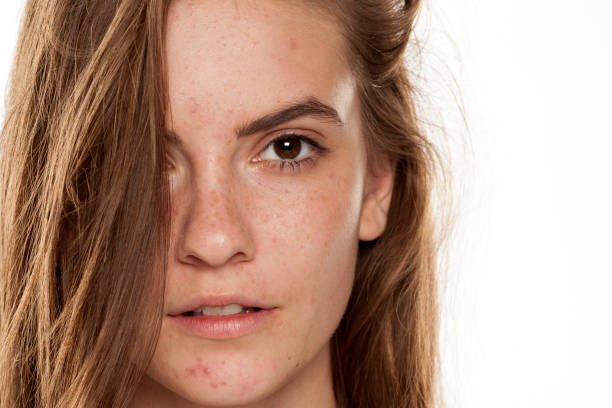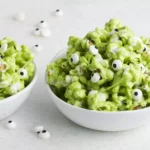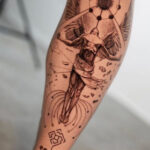Are you struggling with a stubborn cystic pimple that refuses to go away? These types of pimples are typically deeper and more painful than regular pimples, making them harder to treat!
Dealing with a cystic pimple can be both painful and frustrating, especially when you’re eager to minimize its size and discomfort quickly. While it’s challenging to magically make a cystic pimple vanish overnight, there are some tried-and-true methods and tips that can help reduce its appearance and ease the discomfort.
In this guide, we’ll explore practical steps and remedies on how to shrink a cystic pimple overnight to help you wake up to a more manageable, less inflamed blemish. While instant results may not always be possible, these strategies can significantly improve the situation by morning.
What IS Cystic Acne?
Cystic acne is a severe and painful form of acne that occurs when deep, inflamed cysts or nodules form beneath the skin’s surface. These cysts are filled with pus and can be larger and more persistent than typical acne pimples or blackheads. Cystic acne is often characterized by red, swollen, and tender bumps that can cause scarring if not treated properly. It is typically caused by a combination of factors, including hormonal fluctuations, genetics, and excessive oil production, and it often requires targeted medical treatments, such as prescription medications or dermatological procedures, to manage effectively.
When Should You Try to Shrink Cystic Pimples?
it’s advisable to try and shrink a cystic pimple when it’s at its early stages and hasn’t fully developed into a large, painful nodule. At this point, you may notice a deep, tender bump beneath the skin, and addressing it promptly can help prevent it from growing larger and more painful. To shrink a cystic pimple, you can start with over-the-counter spot treatments containing ingredients like benzoyl peroxide or salicylic acid. Additionally, warm compresses applied to the area can help reduce inflammation and promote drainage.
However, if the cystic pimple is already large, painful, or not responding to at-home treatments, it’s best to consult a dermatologist, as they can provide more effective medical interventions, such as corticosteroid injections or prescription medications, to minimize its size and discomfort.
How to Shrink a Cystic Pimple Overnight?
Shrinking a cystic pimple overnight is challenging, but there are steps you can take to help reduce its size and discomfort:
Ice It
Applying ice to a cystic pimple can help reduce inflammation and swelling. Wrap an ice cube in a piece of cloth and apply it to the affected area for 10-15 minutes.
Use Tea Tree Oil
Tea tree oil has natural antibacterial properties that can help kill acne-causing bacteria. Apply a drop of tea tree oil directly to the pimple before bedtime and leave it on overnight.
Apply Benzoyl Peroxide
Benzoyl peroxide is a common acne treatment that can help reduce inflammation and kill bacteria. Apply a thin layer of benzoyl peroxide cream to the pimple before bed.
Overnight Spot Treatment
Consider using an overnight acne treatment specifically designed to be left on the skin overnight. These products often contain ingredients like sulfur or clay to draw out impurities.
Use a Clay Mask
Clay masks are great for absorbing excess oil and unclogging pores. Apply a clay mask to the affected area before bed and leave it on overnight.
Take an Anti-Inflammatory Medication
If your cystic pimple is particularly painful and inflamed, taking an anti-inflammatory medication like ibuprofen can help reduce swelling and pain.
While these steps may help reduce the size and discomfort of a cystic pimple, it’s unlikely to completely eliminate it overnight. Cystic acne often requires time to heal, and persistent or severe cases may benefit from professional dermatological treatments. If your cystic acne doesn’t improve or becomes more painful, consult a dermatologist for personalized advice and possible medical interventions.
How to prevent cystic pimples
- Use a gentle, sulfate-free cleanser to wash your face twice daily to remove dirt, oil, and makeup.
- Exfoliate regularly to remove dead skin cells and prevent clogged pores. Use a gentle exfoliant with salicylic acid or glycolic acid.
- Avoid touching your face, especially with dirty hands, as this can transfer bacteria and contribute to breakouts.
- Maintain a balanced diet rich in fruits, vegetables, whole grains, and lean proteins. Limit sugary and processed foods that can trigger acne.
- Drink plenty of water to keep your skin hydrated and promote overall skin health.
- Practice stress-reduction techniques such as meditation, yoga, or deep breathing exercises. High stress levels can exacerbate acne.
- Keep your hair clean and avoid allowing oily hair products to come into contact with your face. Pull back hair from your face if applicable.
- If possible, reduce the use of heavy makeup and allow your skin to breathe.
- Use a broad-spectrum sunscreen with SPF 30 or higher to protect your skin from UV damage. Sunburn can worsen acne.
FAQ
- Can toothpaste really shrink a cystic pimple overnight? Although some people swear by this remedy, there is no scientific evidence to support it. In fact, applying toothpaste to your skin can cause irritation and dryness.
- Is it safe to pop a cystic pimple? No, popping a cystic pimple can cause further inflammation and infection, leading to scarring or more pimples.
- Can diet affect the development of cystic pimples? Yes, certain foods like dairy, sugar, and processed foods can contribute to the development of acne. Eating a balanced diet with plenty of fruits, vegetables, and whole grains can help improve your skin’s health.
- Should I apply moisturizer to a cystic pimple? Yes, it’s important to keep the surrounding skin hydrated to prevent dryness and irritation. Just make sure to use a non-comedogenic moisturizer that won’t clog your pores.
- How long does it take for a cystic pimple to heal? It can take anywhere from several days to several weeks for a cystic pimple to heal completely. Consistent treatment can speed up healing time and reduce the appearance of the pimple.
- Can stress cause cystic pimples? Yes, stress can trigger hormonal changes in the body that can lead to the development of acne, including cystic pimples. Managing stress through relaxation techniques like yoga or meditation can help improve your skin’s health.
Final Takeaway
Shrinking a cystic pimple overnight can be challenging, but by following these tips and tricks, you can reduce inflammation and promote faster healing. Remember to be patient and consistent in your treatment, and avoid using harsh products or picking at your skin. With time and care, your cystic pimple will eventually disappear, leaving your skin looking healthy and clear.







